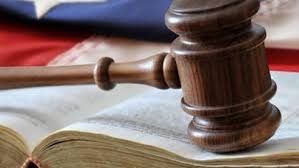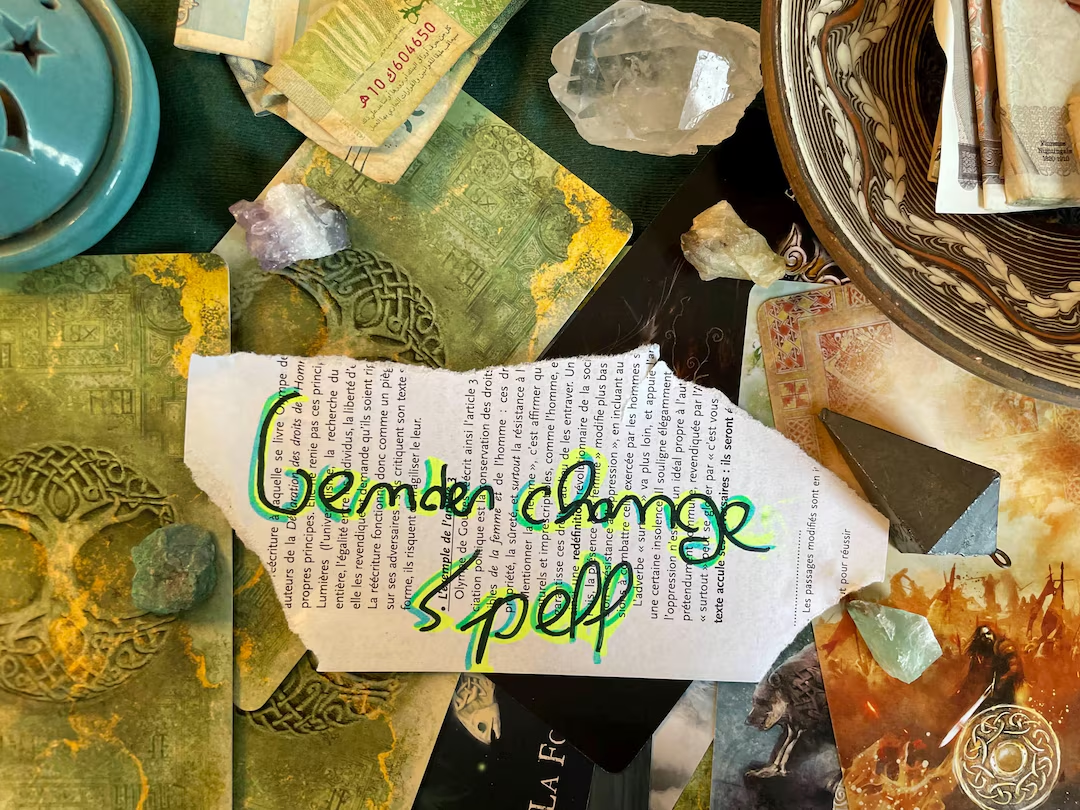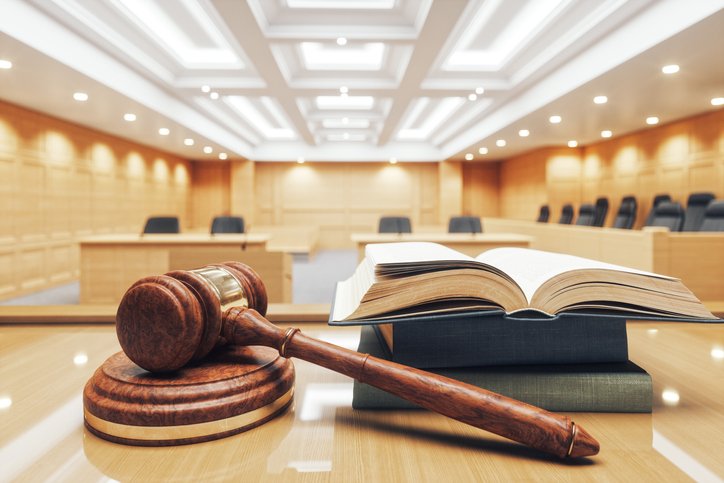Introduction to Courtroom Spells
The intersection of magic and law has long been a subject of interest and debate, particularly within various cultural contexts. In this exploration of courtroom spells, we delve into the compelling notion that individuals can invoke supernatural forces to influence the outcome of legal battles. This belief is often steeped in tradition, with numerous communities promoting the idea that spells can be a valuable adjunct to more conventional strategies in court. The practice of using magic in legal contexts reflects a deeper cultural narrative where faith in the unseen is paralleled by an understanding of human vulnerability in the face of injustice.
For many, the courtroom represents a battleground where one’s rights and realities hang in the balance. In such high-stakes environments, individuals may turn to spells not only as a last resort but also as a way to empower themselves psychologically. The act of casting spells can be seen as a means of reclaiming agency in scenarios where one feels powerless against the complexities of the legal system. Moreover, personal experiences and folklore contribute to the belief that particular spells hold unique power to sway judicial outcomes—an idea that resonates deeply with those who feel marginalized or unheard in traditional legal settings.
The efficacy of courtroom spells often relies on the practitioner’s intentions, emotional state, and cultural background. Such spells may vary widely, encompassing everything from rituals that are steeped in heritage to contemporary adaptations designed to resonate with modern practitioners. While empirical evidence may be lacking, the subjective experiences of those who have engaged in these magical practices often support the belief that spells can enhance their court experiences. As we further explore the strongest spells to win a court case, it is essential to appreciate the nuanced relationship between belief systems and their potential ramifications in the pursuit of justice.
Understanding the Legal System
The U.S. legal system is a complex network designed to uphold justice through a series of interconnected courts, each serving a specific function within the judicial framework. At its core, the system is divided into federal and state courts, with the latter handling most legal disputes through a myriad of structured levels, including trial courts, appellate courts, and state supreme courts. Federal courts, on the other hand, primarily address matters that pertain to federal law or involve parties from different states.
Judges play a pivotal role in this legal ecosystem, serving as impartial arbiters who ensure that trials are conducted fairly and according to the law. Their duties include interpreting statutes and overseeing the legal proceedings. In jury trials, jurors bring community perspective into the judicial process, tasked with evaluating evidence and delivering verdicts based on the information presented during the trial. The collaboration between judges and jurors highlights the importance of collective judgment in determining the outcomes of cases.
Evidence is the cornerstone of any legal proceeding, influencing decisions made by both judges and juries. In most cases, parties involved must present substantial evidence to substantiate their claims or defenses. Legal representation is equally crucial; attorneys advocate for their clients, crafting arguments and strategizing around the evidence to achieve favorable outcomes. The preparation of a strong case always involves meticulous attention to legal details, understanding procedural rules, and effectively presenting one’s argument.
This foundational knowledge of the U.S. legal system not only clarifies the conventional processes of seeking justice but also creates an intriguing backdrop for the exploration of unconventional methods—such as spells—that some may consider as complementary to established legal strategies. While these practices may not replace traditional legal approaches, they contribute to a fascinating intersection where the mystical and the legal realms can coalesce.
Types of Spells for Court Cases
In the realm of magical practices, various spells are believed to assist individuals facing legal proceedings. These spells can be categorized into three main types: spells for favor, spells for protection, and spells for clarity. Each of these spells serves distinct purposes and is designed to achieve desired outcomes in a courtroom context.
Spells for favor are intended to tilt the odds in the practitioner’s direction during court cases. These spells often involve rituals that invoke supportive energies or spirits to bring luck and positive outcomes. For example, a common spell for favor may include lighting a green candle, representing prosperity, and reciting a specific incantation that requests assistance from legal deities or spirits. Additionally, ingredients such as herbs like basil and chamomile may be included to enhance the spell’s efficacy.
Protection spells, on the other hand, are meant to shield individuals from harm and malicious intent during legal battles. These spells can help to create a barrier against negative influences, such as biased judges or deceitful opposing counsel. A typical protection spell might involve creating a protective charm, using items like black tourmaline for grounding and protection, along with salt for purification. The practitioner would then focus their intention on creating a shield that defends against adverse energies during the court case.
Lastly, spells for clarity are essential when legal situations become clouded or confusing. These spells aim to provide insight into the truth and help the individual remain clear-headed throughout the legal process. An example could include a spell that utilizes a peacock feather, symbolizing clarity and vision, paired with lavender to promote calmness and focus. This type of spell may involve meditation and visualization techniques to ensure accuracy in understanding legal matters.
Through the careful application of these spells, practitioners strive to navigate the complexities of the legal system, seeking favorable judgments, protection from adverse forces, and enhanced clarity in situations fraught with legal challenges.
Historical Perspectives on Magic in Law
The intersection of magic and law is a captivating aspect of historical legal practices, revealing how diverse cultures have integrated the mystical into their legal systems. Throughout history, various societies have placed significant belief in the ability of spells and rituals to influence judicial outcomes. In ancient civilizations, such as those in Mesopotamia and Egypt, magicians often served as advisors to rulers and judges, providing spiritual guidance alongside legal counsel.
The ancient Greeks also employed oracles, who were believed to possess prophetic abilities, in legal matters. The Oracle of Delphi held considerable sway, and litigants would seek divination results before pursuing a case, believing these insights could affect their chances of success in court. The Roman legal system similarly acknowledged the presence of augurs, experts who interpreted omens and took them into account during legal proceedings.
In medieval Europe, the reliance on spellwork and magic evolved but continued to be significant. Notably, trials by ordeal were common, where the accused would undergo physically challenging tests, believed to be divinely engineered to reveal guilt or innocence. Furthermore, prominent historical figures, such as King Solomon, were celebrated for their wisdom and magical prowess in adjudicating disputes, with many tales suggesting that his judgments were influenced by supernatural insight.
As societies modernized, the explicit use of magic in legal contexts diminished but the underlying beliefs often persisted. The folklore surrounding cases involving witches and other practitioners of magic during the witch trials exemplified the societal anxieties intertwined with legal decisions at that time. Today, while the legal system operates within a framework grounded in evidence and rationality, the historical perspectives on magic in law illustrate a fascinating blend of belief, tradition, and justice throughout human history. This legacy continues to be referenced and explored, emphasizing the enduring connection between magic and legal outcomes.
Essential Ingredients and Tools for Spellwork
Engaging in spellwork, particularly with the intention of influencing a court case, often requires specific materials and tools believed to enhance the effectiveness of the practices. Understanding the purpose and usage of these components can significantly impact the practitioner’s focus and intent. Here, we explore essential ingredients and tools that are commonly used in court-related spells.
Herbs play a pivotal role in spellwork, with various types possessing unique properties conducive to legal matters. For instance, white sage is often utilized for purification and protection, helping to create a shield against negative energies. Additionally, cinnamon is believed to attract prosperity and success, making it a favorable choice for those seeking a positive outcome in their case. These herbs can often be found at local herbal shops or online marketplaces.
Crystals also serve as powerful allies in spellwork. Amethyst, known for its calming properties, can assist in reducing stress and enhancing clarity during legal proceedings. On the other hand, citrine is associated with manifesting wealth and positive energy, ideal for drawing favorable results in court. Many crystal shops offer a wide selection, and they can even be incorporated into rituals by carrying them or placing them on an altar.
Candles are another essential tool, with colors symbolizing different intentions. For example, blue candles are often used for communication and truth, while green candles represent abundance and success. When performing a spell, it is crucial to focus your intent while lighting the candle, allowing the flame to carry your wishes into the universe.
Lastly, symbols such as the justice scale can be incorporated into spellwork to represent balance and fairness. These symbols can be drawn on paper or created using physical representations. Gathering these essential ingredients and tools not only enhances the spellwork but also fosters a mindset aimed at achieving justice. Practical tips for acquiring these materials include visiting local occult shops, seeking out reliable online vendors, or even growing herbs at home.
Step-by-Step Guide to Casting Courtroom Spells
Utilizing magic in the context of court proceedings can be an empowering and enlightening experience. However, it’s essential to approach this with caution and an understanding of the ethical implications involved. This guide will provide you with a structured approach to casting courtroom spells effectively.
The first step in casting a courtroom spell is to set clear intentions. Take some time to reflect on the outcome you desire in your legal situation. Writing down your intentions can clarify your goals and lend strength to your focus. This practice not only helps in consolidating your thoughts but also allows you to align your energy with your desired outcome ethically.
Next, creating a sacred space is a crucial part of the process. This space should be free from distractions and imbued with calmness. You can enhance the environment by incorporating items such as candles, crystals, or personal mementos that hold significance to you. Ensuring that your space is quiet and free from interruptions will allow you to concentrate fully on your spellwork.
Once your space is prepared, the casting of the spell can begin. This typically involves a combination of spoken words, gestures, and visualization techniques. While each spell can vary in its mechanics, it is advisable to perform this within a timeframe that suits your legal case; ideally, close to your court date. It is also essential to employ protective practices—such as invoking a protective deity or using salt to create barriers—to safeguard your energy and intentions during the process.
Finally, it is imperative to adhere to ethical considerations when employing magic in a legal context. Recognize that while you can cast spells to influence outcomes, respecting the autonomy of others involved is crucial. Therefore, ensure your spells aim to promote justice and fairness rather than manipulation or coercion. By following these guidelines, you can cast powerful courtroom spells while maintaining a sense of moral integrity.
Integrating Spells with Legal Strategies
When navigating the complexities of a court case in the USA, combining traditional legal strategies with spellwork can offer a unique and holistic approach. It is crucial to recognize that while spells can serve as a supportive element, they should not replace a solid legal foundation. Engaging with a qualified attorney to establish a robust case is essential, as legal expertise provides the necessary guidance to navigate the intricate legal system.
To effectively integrate spells with legal strategies, one must first ensure that the legal aspects of the case are thoroughly addressed. This involves researching relevant laws, gathering essential documents, and prepping for possible courtroom scenarios. While the case is being built, spellwork can serve as an augmentation, focusing on intentions that align with the desired outcome. For instance, spells aimed at clarity, protection, or justice can help alleviate stress and enhance confidence during the legal process.
Additionally, working collaboratively with legal professionals is paramount when incorporating spellwork into your strategy. Open communication with your attorney about your intentions can lead to a more cohesive strategy. They may even offer insights on how to approach the situation from a legal standpoint, which can complement your magical efforts. It is important to maintain realism and respect the boundaries of both spiritual practices and legal norms.
Furthermore, utilizing spells that are geared towards enhancing the legal process—such as those promoting communication, confidence, and understanding—can prove beneficial. These spells can help in fostering a more balanced state of mind for all parties involved, facilitating peaceful dialogues. Ultimately, the fusion of spellwork with legal strategies creates a nuanced approach to achieving justice while honoring the seriousness of the court system.
Personal Stories and Testimonials
Over the years, many individuals have shared their experiences of incorporating spells and magical practices into their legal battles, reflecting a unique intersection of spirituality and justice. One notable account comes from a woman named Sarah, who faced an arduous custody battle. Feeling overwhelmed by the legal complexities, she turned to a local practitioner of magic who suggested a specific spell aimed at nurturing love and protection. Sarah reported that not only did the spell provide her with emotional support during the hearings, but it also seemed to positively influence the judge’s perception of her parenting capabilities. She cited a profound sense of calmness which she attributed to the spells, ultimately leading to a favorable outcome.
Another testimony comes from John, who was wrongfully accused of a crime he did not commit. Desperate to prove his innocence, he sought spiritual guidance and participated in a ritual that focused on clarity and truth. According to John, the ritual empowered him to present his case more effectively, allowing him to articulate his story with confidence. He believes that the combined energy from the spell and his newfound conviction played a critical role in garnering support from witnesses who subsequently came forward to testify on his behalf.
These personal narratives not only highlight the emotional support that magic can provide during stressful legal situations but also suggest an element of serendipity that fans the flames of belief in the efficacy of spells. Individuals such as Sarah and John demonstrate that affirmations of faith, bolstered by rituals and spells, can coalesce with traditional legal strategies to inspire a sense of agency and hope in daunting circumstances. As more people share their stories, the landscape of legal and magical integration may expand, bridging gaps between skepticism and belief.
Conclusion: The Power of Belief in Justice
Throughout our exploration of spells and rituals intended to influence court outcomes in the USA, we have wandered through an intriguing intersection of the metaphysical and the legal realms. It is essential to recognize that while these practices can provide emotional and spiritual support, they should not overshadow the fundamental principles of justice grounded in legal statutes and regulations. The idea of using spells to win a court case emanates from deep-seated beliefs in the powers of intention and the human spirit. Such practices may serve as a source of comfort and empowerment, creating a psychological framework where individuals feel they possess agency in their legal battles.
However, it is crucial to understand that belief alone, no matter how profound, cannot replace the solid foundation provided by the legal system. The reality of courtroom dynamics, evidence, and legal arguments cannot be bypassed through spiritual means. Engaging in practices that inspire belief, such as rituals or spells, may enhance one’s mindset, ultimately fostering resilience and clarity in a stressful legal scenario. Thus, while the power of belief in justice is undeniable, it should complement rather than replace diligent preparation and understanding of the law.
We encourage readers to explore their own belief systems and personal practices that resonate with their pursuit of justice. Such exploration may involve a mixture of legal knowledge, self-empowerment strategies, and spiritual beliefs. Ultimately, the journey toward achieving a just outcome in court cases is deeply personal, often requiring an intricate blend of faith in oneself and reliance on established legal principles. Thus, as one navigates this complex path, let it be with an open mind towards both justice and the power of belief.









